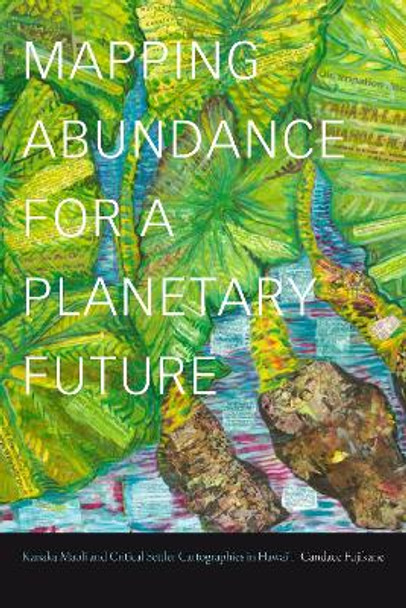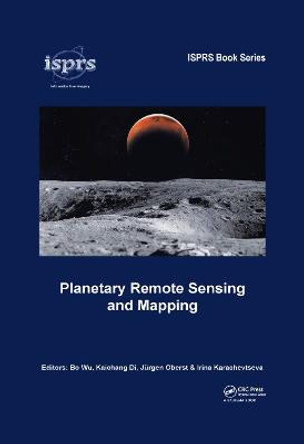Description
About the Author
Candace Fujikane is Professor of English at the University of Hawai'i and coeditor of Asian Settler Colonialism: From Local Governance to the Habits of Everyday Life in Hawai'i.
Reviews
"Mapping Abundance for a Planetary Future slays settler colonial cartographies that diminish life. The book breathes with the voices of Hawaiian communities, lands, movements, elements, and Candace Fujikane herself, at her best. Saturated in the abundance of Kanaka Maoli mappings and mo'olelo, this book is a spear and a spade, medicine and masterpiece, a diagnosis and a portal, a lei and a ho'okupu." -- Noelani Goodyear-Ka'opua, author of * The Seeds We Planted: Portraits of a Native Hawaiian Charter School *
"With intellectual verve, analytical agility, and ethnographic gracefulness, Candace Fujikane unpacks the perversity of settler capitalism, which produces scarcity in order to claim its toxic surplus, as she amplifies Kanaka Maoli support of an earth cartography of abundant healing and protection. A groundbreaking work; a must-read." -- Elizabeth A. Povinelli, author of * The Inheritance *
"Fujikane's careful attention to the abundance of Kanaka Maoli cartographies is wondrous.... As Fujikane shares her work mapping abundance, she practices abundance, not speaking as an isolated or atomized individual, but speaking through relations and the struggles led by Elders, by akua and by land, seas, and skies." -- Sarah Wright * AAG Review of Books *
"Pulsating with the wave-like rhythms of the Kanaka Maoli (native Hawaiian) perspective, this ethnographic atlas presents a dialogic way of knowing the land, with a loving commitment to community, terms seldom seen in Western economic and political analyses. Conveyed with a sense of poetry, loss, and hope, the indigenous idea of protecting abundant ecosystems, along with their guardian elementals (deities of the land and waters), is contrasted with a shortsighted capitalistic view of scarcity as determinative of value, resulting in exploitation and toxicity. . . . Highly recommended. Lower- and upper-division undergraduates. Graduate students and faculty. General readers."
-- S. E. Wiegand * Choice *
"Mapping Abundance for a Planetary Future is a stunning book. Employing the teachings of Indigenous cartographic practices to trouble the Western epistemologies of subdivision that underpin private property development, Fujikane charts out an unabashedly hopeful vision for futures that exceed the dictates of capitalist accumulation." -- Hi'ilei Julia Hobart * Lateral *
"[Fujikane] successfully makes a case for mapping abundance as a profoundly decolonial act. Via her carefully selected case studies, she provides a guide for doing so. Mapping Abundance is a rich starting point for a deeper and more expansive look at the interconnectivity of Indigenous populations around the world and their struggle against climate change. . . . The book inspires hope that is grounded in established, but not static, Indigenous Hawaiian knowledges. It offers rich insights for geographers engaged with decoloniality, indigeneity, and both critiques of cartography, and alternative, emancipatory visions and practices of map and world-making." -- Aloysie Umutoniwase Kwizera * Social and Cultural Geography *
"Mapping Abundance is a beautiful, thoughtful, and inspiring account of Kanaka Maoli sovereignty, offering glimpses of what can take root and flourish in interconnected sites of anti-colonial struggle across the world." -- Zannah Mae Matson * C Magazine *
"Mapping Abundance is a testament to the excellent work academics and activists are doing in tapping traditional literature to enhance the knowledge about ancient Hawaiian land tenure and to better understand the successful ways in which early settlers of the islands worked in harmony with the varied landscapes of the islands." -- Gary L. Fitzpatrick * Imago Mundi *
"[Mapping Abundance for a Planetary Future] is a shining example of the ways in which those with ancestral connections to the elemental forms of a place and settlers who are, to use Robin Wall Kimmerer's terminology, naturalized to place can and must work together to achieve the societal shift needed to reach a planetary future of abundance." -- Mary Tuti Baker * Native American and Indigenous Studies *
"Fujikane elevates the work and knowledge of Kanaka and allies she has stood alongside in the stories she tells. The decolonial relationship to land that Fujikane aspires to is constantly found in the community she seeks to better serve, and it is this community that forms the heart of the book. Though Mapping Abundance is specific to Hawai'i, the interconnected nature of abundance mapped in these pages can make itself known to all aspiring allies to Indigenous causes and stewards of the environment in environmental studies and beyond." -- Matthew J. McConnell * Environmental History *
Book Information
ISBN 9781478011682
Author Candace Fujikane
Format Paperback
Page Count 304
Imprint Duke University Press
Publisher Duke University Press
Weight(grams) 454g




